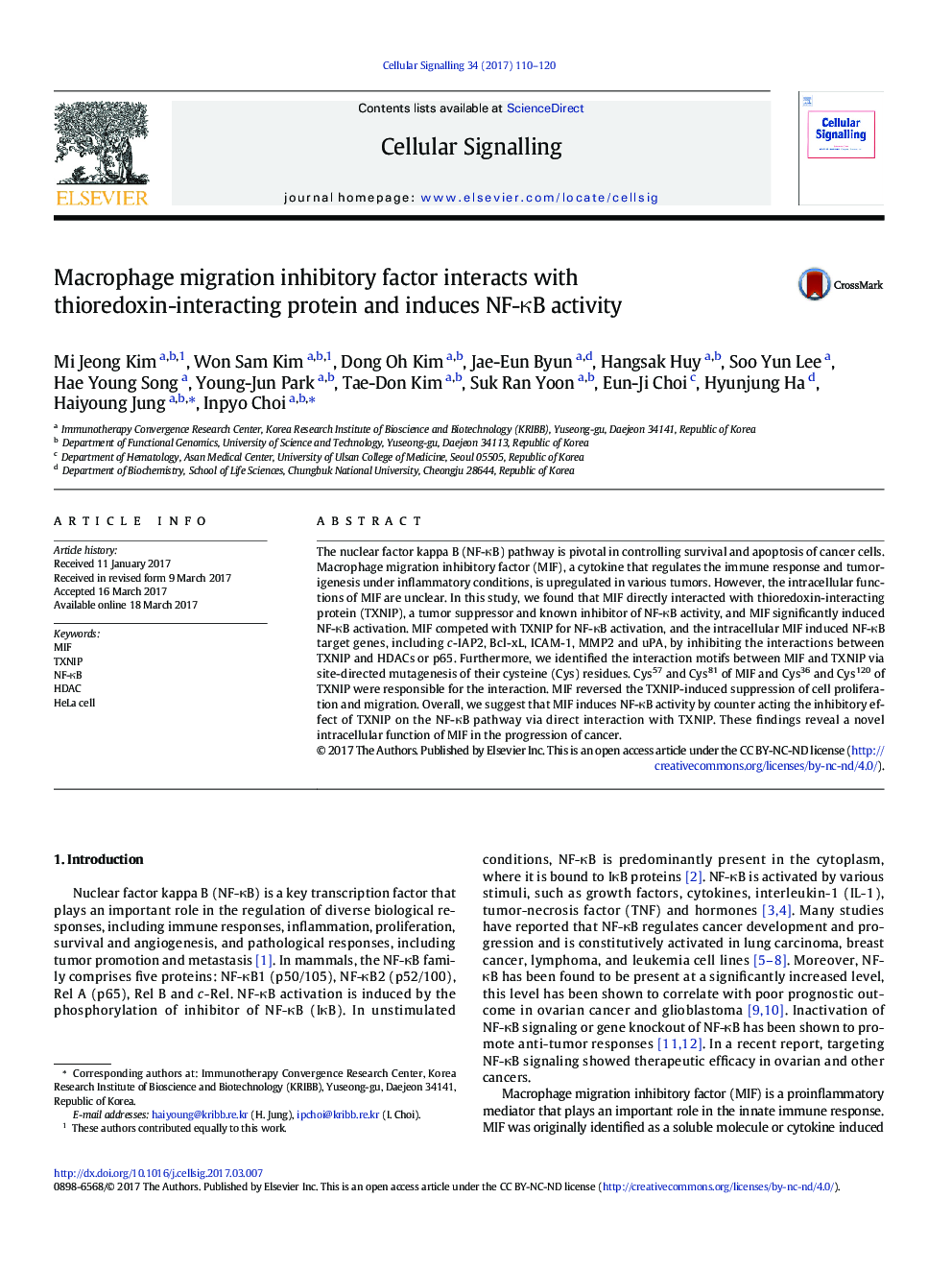| Article ID | Journal | Published Year | Pages | File Type |
|---|---|---|---|---|
| 5509365 | Cellular Signalling | 2017 | 11 Pages |
â¢Intracellular MIF induces NF-kB activity.â¢MIF interacts with TXNIP directly via its cysteine residues.â¢MIF reverses the TXNIP-induced suppression of cell proliferation and migration.
The nuclear factor kappa B (NF-κB) pathway is pivotal in controlling survival and apoptosis of cancer cells. Macrophage migration inhibitory factor (MIF), a cytokine that regulates the immune response and tumorigenesis under inflammatory conditions, is upregulated in various tumors. However, the intracellular functions of MIF are unclear. In this study, we found that MIF directly interacted with thioredoxin-interacting protein (TXNIP), a tumor suppressor and known inhibitor of NF-κB activity, and MIF significantly induced NF-κB activation. MIF competed with TXNIP for NF-κB activation, and the intracellular MIF induced NF-κB target genes, including c-IAP2, Bcl-xL, ICAM-1, MMP2 and uPA, by inhibiting the interactions between TXNIP and HDACs or p65. Furthermore, we identified the interaction motifs between MIF and TXNIP via site-directed mutagenesis of their cysteine (Cys) residues. Cys57 and Cys81 of MIF and Cys36 and Cys120 of TXNIP were responsible for the interaction. MIF reversed the TXNIP-induced suppression of cell proliferation and migration. Overall, we suggest that MIF induces NF-κB activity by counter acting the inhibitory effect of TXNIP on the NF-κB pathway via direct interaction with TXNIP. These findings reveal a novel intracellular function of MIF in the progression of cancer.
